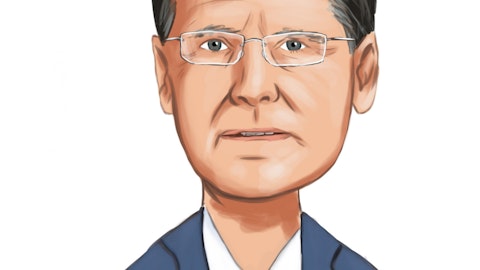In this article we are going to list the 15 largest investment companies in the world. Click to skip ahead and jump to the 10 largest investment companies in the world. The investment industry is one of the biggest industries in the world, and why wouldn’t it be? After all, every one wants to increase their wealth and have and enjoy a higher standard of living. While many people invest on their own, nowadays, investing has become a supremely complex process and due to the risk of losing your money or your savings, many people are too afraid to take a chance and make a punt on their own. While many are liable to get lucky, the majority won’t and end up losing what they’ve already got rather than add to it.
This is where major investment companies come in; they serve everyone from people only willing to save a small amount to major investors who’ve got millions and billions of dollars and want to further grow their pot. These investment companies have experts who carry out in-depth analysis on the best opportunities for investments, especially in listed companies. This includes detailed scrutiny of the company, its practices and most importantly, its financial statements to ascertain whether they think the value of the shares of these companies will increase or decrease with time. Of course, investment in shares of a listed company is just one form of investment; investing in other options such as property and now, even cryptocurrency are major options for many people. And this coming on the fact of Bitcoin recording its highest value yet in history, surpassing the $20,500 mark and is expected to grow even further, now that major companies such as PayPal are jumping on the bandwagon and more and more corporations start to legalize cryptocurrency. If you don’t want to invest a lot of money, but still make some profit, consider taking a look at the 7 most profitable businesses with least investment in 2020.

Pixabay/Public Domain
In addition to individuals of course, countries need investments as well. This is more true for developing economies, and the vast number of countries in thee world are categorized as developing economies, constituting more than 100 countries across the world. These companies have a high population and a comparatively low standard of living against developed economies, while they’re also now focusing on developing infrastructure and structural transformations to raise their economic output, and since these countries aren’t very rich, they need aid or investments from other countries. While some countries are able to provide tens of billions of dollars worth of aid to poorer countries, many other countries instead choose to make loans or make investments, such as China, which has entered into the CPEC project (China Pakistan Economic Project) with Pakistan, a developing economy lacking infrastructure. 80% of this project, which is now worth more than $70 billion, is investment based, through joint ventures between Pakistan and China. This project has been accused of being a debt trap by China and the US, and has even been accused of being a neo-imperialist exercise, where a country provides economic help for influence rather than simply using military force as was the norm over the past several centuries. The fact that the finances of this project are shrouded in mystery also lend further credence to these concerns.
However, due to numerous reasons, total global investment has continued to fall year on year. This trillion dollar industry saw global foreign direct investment fall in 2018, continuing the trend of the previous year, falling to just $1.3 trillion, which is a 13% decline from 2017. However, foreign direct investment actually increased in developing countries, at least slightly, while the fall was mostly recorded in developed countries as well as economies which are in transition. Even before the pandemic hit, which I’ll talk about in greater detail below, more than two thirds of more than 2,400 firms said their policies regarding investments were uncertain due to economic nationalism in trade as well as protectionism. Protectionism refers to slapping extra tariffs on goods being imported to discourage imports and instead encourage purchase of local products to stimulate the economy.
As I mentioned earlier, the global investment industry has already been suffering with global investments consistently falling due to trade and investment policies being uncertain, rising protectionism, falling commodity prices and even the uncertainty due to Brexit, and now Covid-19 has simply accelerated this effect, causing devastation over the world. Over the past several months, markets have consistently been crashing due to the uncertainty of the disaster wreaked by the pandemic and further uncertainty over the future, as things seemed to be getting better across the world in the summer, and now we seem to be in a second wave which seems more catastrophic and deadly than the first wave. Even though vaccines have been developed and the one by Pfizer (NYSE:PFE) has even been approved for public usage, it will be too late for the next few months where the horizon appears to be very bleak indeed. Due to this uncertainty, many investors have pulled their investments and are quite reluctant to invest now. Tens of millions of people across the world have lost their employment due to the effect of the pandemic on most companies as lockdowns have forced many small businesses to go under and have particularly affected some specific industries, including the airline and hospitality industry as travel bans were enforced. With people unsure where their next check will come from, the focus on investment has been understandably low.
However, even though the industry as whole may be suffering, the biggest investment companies in the world are actually behemoths, with each company holding several trillion dollars worth of assets under management. In fact, the portfolio of the largest investment companies in the world has actually grown by a massive 25%, going from more than 27 trillion euros to 34 trillion euros. Even the smallest countries in our list have assets under management worth several hundred billion euros. Add the fact that these companies have actually seen significant growth year on year simply makes for stunning reading. And I’m sure you will not be surprised to learn that their are only two companies in our list which are not based in the US and the top 7 is entirely from the United States, which is the biggest economy in the world. For our rankings, we have relied on a report by Investments and Pensions Europe, which has ranked the top 500 companies according to their assets under management for 2020. We have considered both assets under management for 2020 as well as 2019, giving 70% weightage to the former since that is the most recent number we have. So let’s now take a look at the companies which are managing assets greater than the GDP of many nations around the world, starting with number 15. :
15. Wellington Management International
Total assets under management in 2019 (in millions of euros): 1,028,708
Total assets under management in 2018 (in millions of euros): 877,735
This private company is 87 years old, having been founded in 1933 and managed to cross the trillion euro asset under management threshold in 2019.

Pixabay/Public Domain





